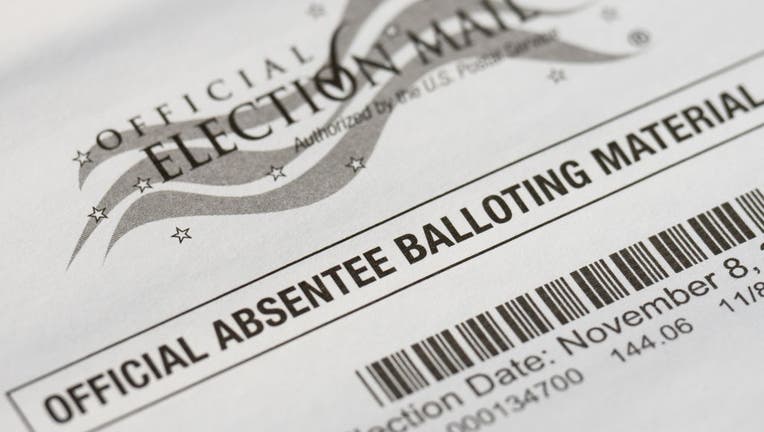Amendment allowing no-excuse absentee voting clears Delaware Senate

UNITED STATES - OCTOBER 11: Official absentee ballot issued in Washington, DC on Tuesday, October 11, 2022. (Bill Clark/CQ-Roll Call, Inc via Getty Images)
DOVER, Del. - The Democratic-controlled state Senate approved a proposed constitutional amendment that would allow no-excuse absentee voting in Delaware in a vote along party lines Thursday.
Democrats introduced the proposed amendment earlier this year after the Delaware Supreme Court ruled that a universal vote-by-mail bill they rammed through the General Assembly last year was unconstitutional. Democratic lawmakers had introduced the bill after failing to win Republican support to amend the constitution.
The Supreme Court upheld a Chancery Court judge’s ruling that the vote-by-mail law impermissibly expanded the categories of absentee voters identified in Delaware’s constitution. The rulings came after Democratic lawmakers, in passing the bill, acknowledged that it may not be constitutional and that the courts likely would have to weigh in.
The constitution currently states that people are allowed to vote absentee if they are unable to go to the polls on Election Day because of their public service, business or occupation. Spouses and dependents who live with or accompany people in those circumstances also are allowed to vote absentee. Sickness or physical disability, vacation, and religion are the other allowances.
The proposed amendment eliminates those restrictions and grants the General Assembly vague and unspecified powers to enact laws regarding absentee voting. The amendment specifies only that any such law must include "an oath or affirmation" that a person’s vote is free from "improper influence," which is not defined.
"How would that be enforced?" asked GOP Minority Whip Brian Pettyjohn, of Georgetown.
Republicans said Delaware’s early voting law already allows residents to cast ballots without having to go to a polling place on Election Day. They also expressed concerns about ballot harvesting of no-excuse absentee votes and about activists using lists of absentee ballot requests and returns to target and improperly influence voters who had received but not yet returned absentee ballots.
A constitutional amendment requires a two-thirds vote by each chamber in two consecutive General Assemblies. With Democrats holding a 15-6 advantage in the Senate, there was little doubt that the amendment would receive the required supermajority of 14 votes. The amendment needs 28 votes in the House, where Democrats hold 26 seats. It would then need supermajority votes in the next General Assembly as well.

